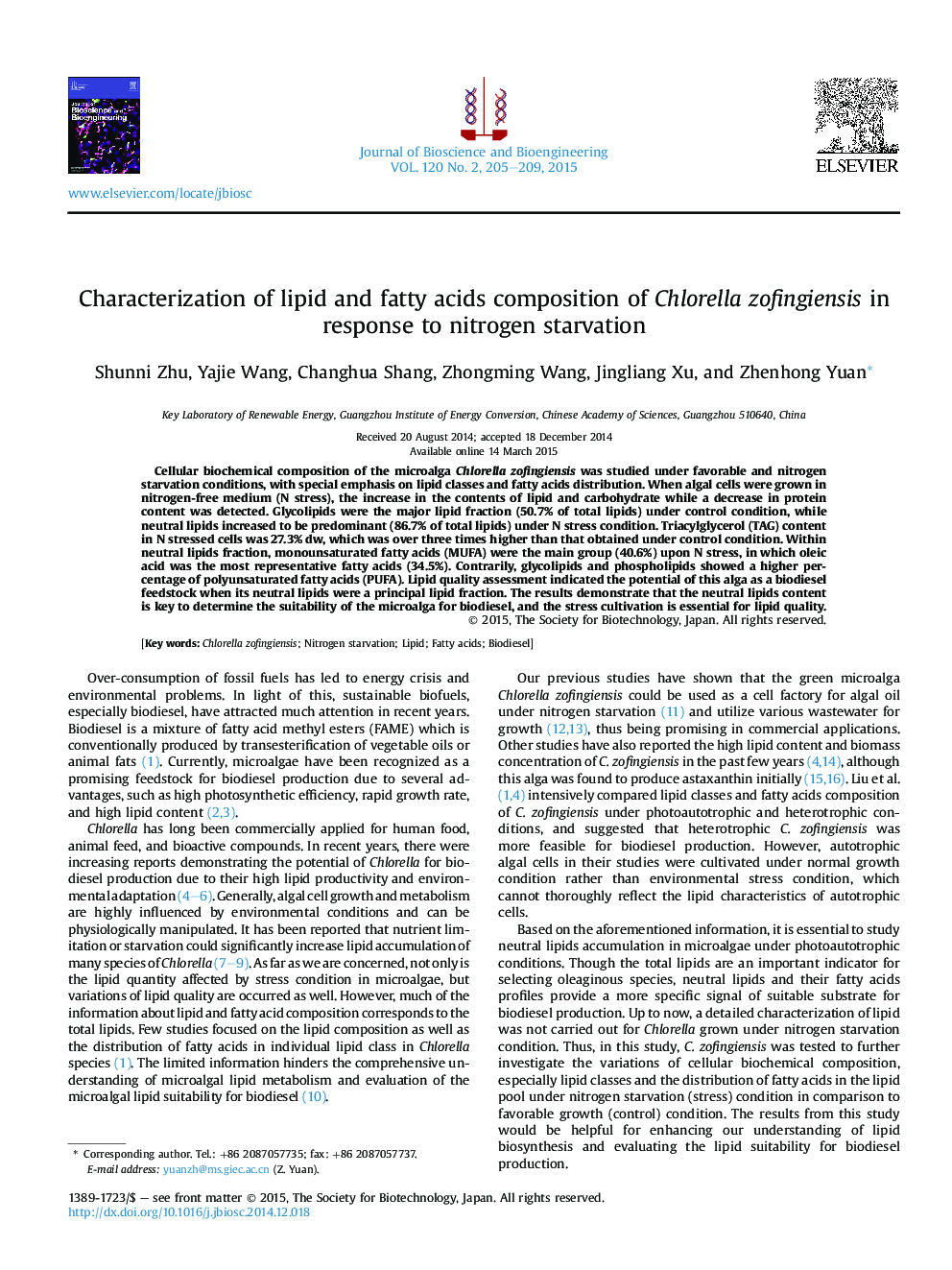| Article ID | Journal | Published Year | Pages | File Type |
|---|---|---|---|---|
| 20254 | Journal of Bioscience and Bioengineering | 2015 | 5 Pages |
Cellular biochemical composition of the microalga Chlorella zofingiensis was studied under favorable and nitrogen starvation conditions, with special emphasis on lipid classes and fatty acids distribution. When algal cells were grown in nitrogen-free medium (N stress), the increase in the contents of lipid and carbohydrate while a decrease in protein content was detected. Glycolipids were the major lipid fraction (50.7% of total lipids) under control condition, while neutral lipids increased to be predominant (86.7% of total lipids) under N stress condition. Triacylglycerol (TAG) content in N stressed cells was 27.3% dw, which was over three times higher than that obtained under control condition. Within neutral lipids fraction, monounsaturated fatty acids (MUFA) were the main group (40.6%) upon N stress, in which oleic acid was the most representative fatty acids (34.5%). Contrarily, glycolipids and phospholipids showed a higher percentage of polyunsaturated fatty acids (PUFA). Lipid quality assessment indicated the potential of this alga as a biodiesel feedstock when its neutral lipids were a principal lipid fraction. The results demonstrate that the neutral lipids content is key to determine the suitability of the microalga for biodiesel, and the stress cultivation is essential for lipid quality.
